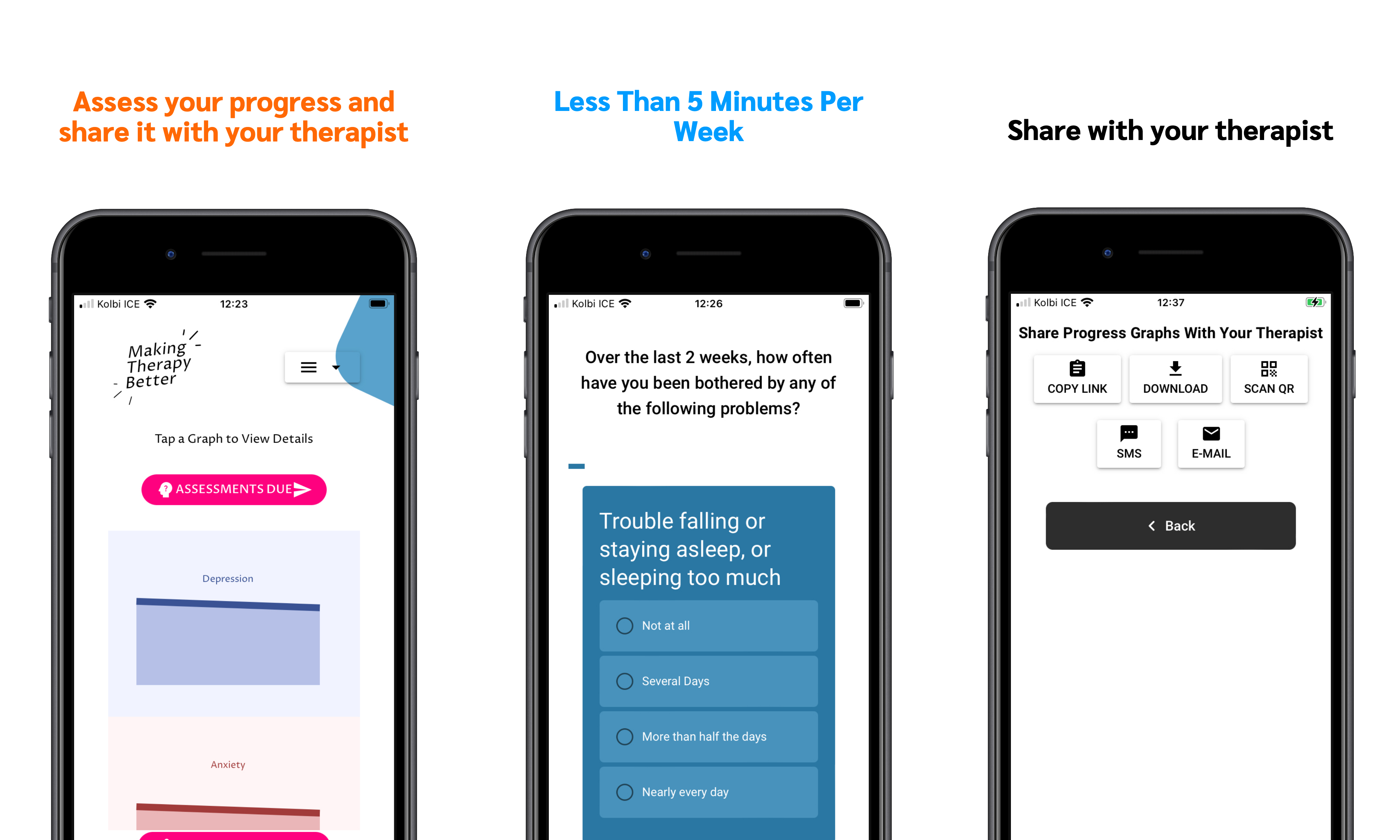How to Talk to Your Therapist About Your Progress in Therapy

Description
Collaboration with your therapist is critical to the success of your therapy. Collaboration depends on two aspects: Your relationship with the therapist and a focus on your progress. Numerous studies have shown discussing information on your progress during therapy and on your relationship with your therapist improves the outcome of therapy. The field has given this process a name: Measurement-based care (MBC) in mental health care.
Unfortunately, some therapists do not have access to the assessment instruments or have not been informed of MBC. So, you can introduce the topic by saying something like this: “I have read that tracking my progress in therapy and my perceptions of therapy and discussing it with you will be beneficial for our work together. I have an app on my phone, designed by a psychotherapy expert, on which my progress can be tracked. I want to share this information with you.”
For some therapist with familiarity with MBC, this might be sufficient. Other therapists will be curious. “Here is a link that describes MBC and the system that the app is using.”
One of the beneficial aspects of MBC is the discussion of your progress and your perception of the therapy and the treatment. Here are some pointers:
- Be honest about how you feel about your progress and your treatment. Your therapists should value your sense of therapy. Some of these conversations might be difficult for you and for your therapist. Give your observations without blaming yourself or your therapist.
- Sometimes, your progress will surprise you or your therapist: “I didn’t pay attention to how well I am doing lately.”
- Or sometimes, your progress has been slow and frustrating. “I don’t seem to be making much progress in therapy and that’s frustrating. Can we talk about that?” This can be a difficult conversation to start but it is often the best way to get therapy going.
- It may well be that you find your therapist warm, accepting, and caring, but you are confused about how the treatment will be helpful: “I really like you and feel that you care about me. But I just don’t understand how what we do in therapy will help me achieve my goals.” If you are unsure about the goals of therapy, you can ask about that too!
Remember, these discussions are legitimate and have found to make therapy more effective. Most therapists will welcome the information and be eager to discuss it with you. You and your therapist are in this together.
